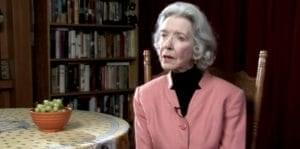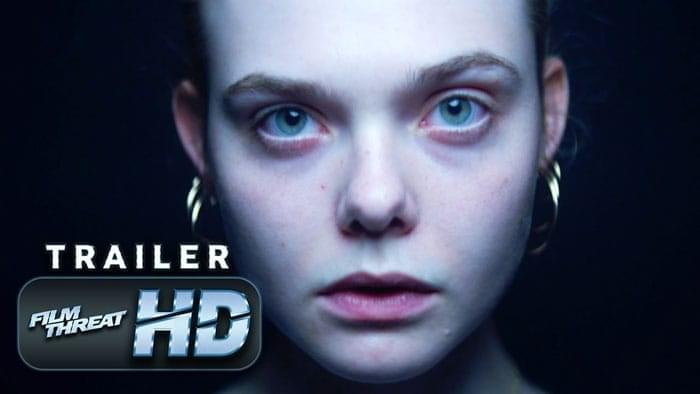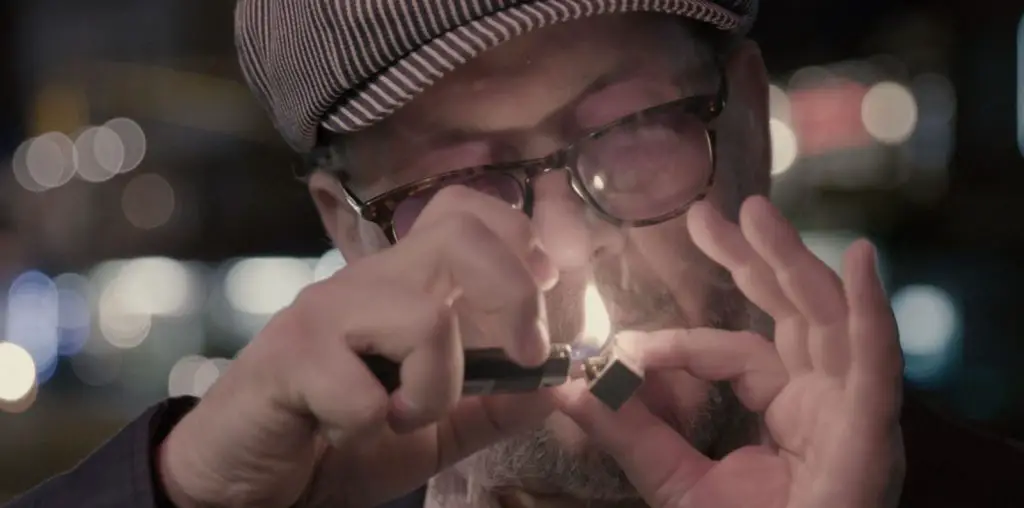
Producing a movie is a time-consuming project. Forgoing however long a screenwriter spent writing the script, let us focus on pre-production through release. Casting can take a lot of time, then the shooting of the movie takes weeks (or even months), and then editing, pick up/ insert/ reshoots and finally release. For some titles, this process can keep movies in limbo for years.
Therefore, when a movie gets released that feels so timely and relevant, so necessary to be viewed here and now, it is a fantastic feat. Marsha Hunt’s Sweet Adversity is a movie that speaks as loudly about the volatile political climate of the United States Of America today, as it does the draconian McCarthy era witch hunts it explores.
From a young age, Marsha Hunt knew she was going to be an actress. To that end, she did not attend college, much to her parents’ chagrin. But becoming an actress wasn’t (and still is not) an easy process, so Hunt decides to be a model first. Then, in 1935, while visiting her uncle in Los Angeles, two friends of hers suggested she go out for a particular part in a movie. Paramount signed her (almost) right away, and she was cast in twelve films altogether for the production studio. She starred with John Wayne, George Burns, and Buster Crabbe to name but a few of the household names she was cast alongside during her twelve picture contract.
Hunt was cast as the female lead in all those films, from The Virginia Judge to Easy Living, which made her an overnight star. However, these simple one-dimensional characters left her unfulfilled, and she begged for juicier parts, even if they were supporting roles.
She was let go from her contract in 1938 and spent a few years making low budget pictures before being scooped up by MGM. This time she started out as a bit player, including a few comedic performances, and moved up the ranks steadily. Throughout the 1940s she was gaining popularity, but after the end of World War II, Hollywood was rattled by the formation of The House Un-American Activities Committee (HUAC for short).

“…their principles would not allow them to denounce what they did or their friends.”
HUAC’s stated goal was to weed out communists and communist sympathizers. Due to how the Cold War was shaping up, believing in, or being empathetic towards, such ideas or people were seen as somehow being anti-American. This led to the creation of the Hollywood Blacklist, which named several actors, writers, directors, what have you, who shouldn’t be hired due to their supposed communist ties. Despite the lack of actual evidence or proof, the Blacklist had the power to ruin hundreds of lives and careers.
This blight of stripping people of their most basic human rights is widely considered one of the lowest points for the US government. Contrary to popular belief, Senator Joseph McCarthy, the symbolic figurehead of all the bile and hate being spilled out during this time never served on the committee. His fiery rhetoric definitely helped shape what the HUAC would investigate and whom, but he was busy making other parts of the government look awful.
In a show of solidarity with the accused and to illuminate upon the maltreatment of those people at the government’s hand, various artists collaborate on Hollywood Fights Back. Written by Hunt’s husband, Robert Presnell Jr., this radio program was designed to shed light on the truth of the accused people and to ensure its listeners understood how reprehensible, and illegal, all this is.
Immediately following Hollywood Fights Back’s broadcast, Humphrey Bogart, Lauren Bacall, Danny Kaye, Marsha Hunt, Robert Presnell Jr., and others flew from Los Angeles to Washington DC. Upon their return a mere three days later, Hunt and Presnell were already on the blacklist. A caveat exists that would give them an out, but their principles would not allow them to denounce what they did or their friends.

“…drawing comparisons to how society is holding the government accountable today…”
You know what though, everything about Hunt’s life and career is possible to learn from Googling her. All the things the HUAC did, the pushback from citizens, and its eventual demise (which coincides with McCarthy’s fall from grace as well) is available for research on Wikipedia. What makes Marsha Hunt’s Sweet Adversity so impactful is seeing the protests, hearing people call out the government for its unfair practices, and drawing comparisons to how society is holding the government accountable today.
This does not fall along party lines either, as for whether one considers themselves a liberal, a conservative, an independent, or something else entirely, does not change what people did back then to fight the HUAC. Nor does it change how many protests and investigations are currently taking up the news cycles today (whether one agrees with them or not, they are happening).
This documentary’s real power comes from its portrait of resilience. Seeing how the USA, and the people most affected by HUAC’s practices, shifted, changed for the better, and survived. Of course, Marsha Hunt herself is interviewed, and she’s not very bitter over the fallout. Disappointed to be sure, but not bitter, and is in fact still acting. She is also quite the activist now. She is trying to bring an end to global hunger, homelessness, and other issues, to this day. Mind you, she’s going on 100 years old. I hope I am as lucid and forward thinking when I get to that age as she is.
Marsha Hunt’s Sweet Adversity highlights one of the worst epochs of government overreach in the United States. People’s lives and careers were ruined because they refused to answer questions, in hearings held with little evidence to indict anyone. If the USA was able to bounce back itself after that, it provides hope that we will be able to do so again in the wake of the current political divides.

Marsha Hunt’s Sweet Adversity (2018) Directed by Roger C. Memos. Written by Roger C. Memos, Richard Adkins, Joan Cohen. Starring Marsha Hunt, Leonard Maltin, Bill A. Jones, Harry Belafonte, Valerie Harper, Reverend John Simmons.
8 Gummi Bears (out of 10)


